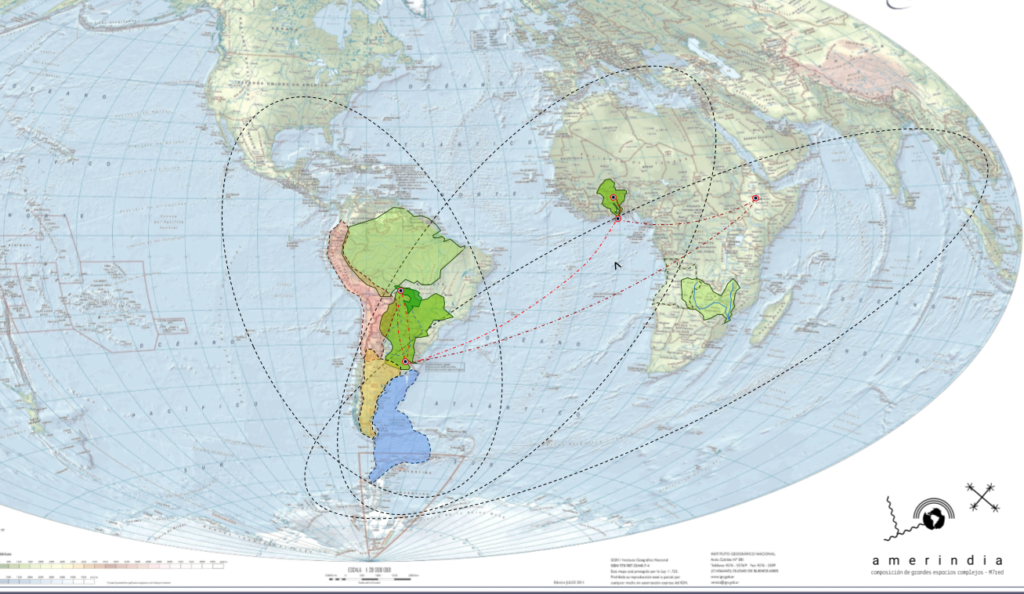A cartography of the global south’s great spaces.
The fragmentation of globalization allows us to retake a concrete dimension of historical space, the material world upon which modern civilization is built. This dimension can be found in great spaces: for us the first model of a great space are the basins, which we have researched since the inception of m7red. Great spaces are the place of assembly of geo-biologic systems with human history, they are comprised of a large geographical time, a civilizatorial structural time and the time of political history. A «complex great space» is methodologically a scale that allows us to frame local realities (cities, regions, zones) on one side, and to concretely articulate global relationships that do not count with a given unity on the other. For example, how a great basin is an agroindustrial funnel that runs south by south or south by north.
This project operates by mapping great spaces on the one side, and traversing them and coming into direct contact with them and their actors on the other. The project finds its origin in the urban and rural basin work around the Matanza-Riachuelo Basin, (2008 – 2015) and it takes its current scale starting in 2022 with our trip to the Volta Basin in Ghana, Africa. It is from that region and continent from where we were made aware of the dimensions and complexity of these great spaces, its structures and potentialities, and specially their global relationships.
In the case of the Volta we could understand how the region accumulates fragments of modernization from its independence process, and how this process articulates and connects itself to the project of Panafricanism on a continental scale.
In 2023 we journeyed to begin the first mapping of the Río de la Plata Basin, the hypothesis of which is the interrelation of an energy and food producing present with a historical cycle of diverse globalizations that start to tense and constitute the region.
This new «great space» methodology inaugurates a new stage in m7red’s work, one in which our theories and previous methodologies can be tested on a larger scale, one that leads not only to quantitative but qualitative changes.
The project is currently comprised of the following spaces:
Cuenca del Volta. New panafricanism. 2022.
With the support of Red Clay Studio and Savannah Center for Contemporary Art, within the framework of the Prince Claus Fund’s Mobile Lab.
Cuenca del Plata. Continental composition. 2023/24.
With the support of the Graham Foundation for Advanced Studies in the Applied Arts.

